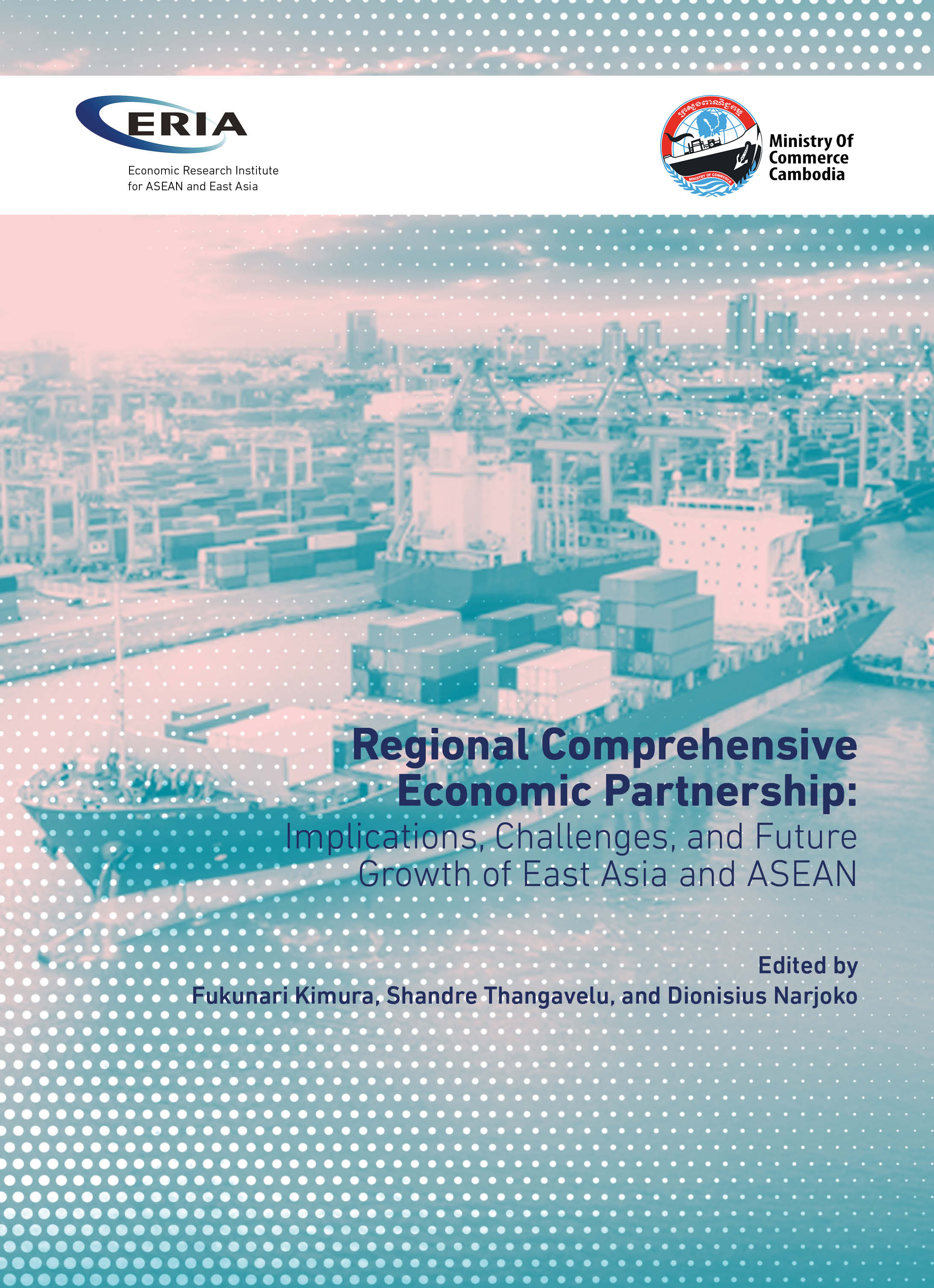Regional Comprehensive Economic Partnership: Implications, Challenges, and Future Growth of East Asia and ASEAN

Date:
14 March 2022Category:
ASEAN, Connectivity, Global Governance and MultilateralismType:
BooksTags:
RCEP, ASEAN and East AsiaPrint Article:
The Regional Comprehensive Economic Partnership (RCEP) became the largest free trade agreement in the world when it was signed in 2020. It comprises the 10 Member States of the Association of Southeast Asian Nations (ASEAN) (Brunei Darussalam, Cambodia, Indonesia, the Lao People’s Democratic Republic, Malaysia, Myanmar, the Philippines, Singapore, Thailand, and Viet Nam) plus five other countries in the region (Australia, China, Japan, the Republic of Korea, and New Zealand). The agreement covers a significant portion of the global economy, contributing to about 30% of global gross domestic product (GDP) in 2019.
RCEP sets an important agenda by releasing huge resources for trade and investment, and creating dynamic regional and global value chain activities. In an effort to reflect this, the Economic Research Institute for ASEAN and East Asia (ERIA) launched a research project on RCEP in 2021, dealing with the key topics covered by the agreement and identifying potential areas of reform at the country level for the RCEP member states to successfully implement the commitments of the agreement.
This is the first of three books ERIA intends to publish to disseminate its research. Regional Comprehensive Economic Partnership (RCEP): Implications, Challenges, and Future Growth of East Asia and ASEAN reports the key social, economic, and political dimensions of the RCEP framework – from the initial conceptualisation of the ASEAN+6 framework to detailed trade negotiations. The book also undertakes recursive computable general equilibrium (CGE) analysis to identify the impact of RCEP. Furthermore, it reviews the services commitments; provides a comparative analysis of RCEP with the ASEAN+1 framework and the Comprehensive and Progressive Agreement for Trans-Pacific Partnership (CPTPP); considers the emergence of a regional architecture from RCEP; examines the role of RCEP in international production networks (IPNs) and the China, Japan, Korea (CJK) effects; and discusses the role of RCEP in the pandemic and post-pandemic recovery.
Full Reports
RCEP: Implications, Challenges, and Future Growth of East Asia and ASEAN
Contents
Chapter 1: RCEP and East Asian Regional Integration
Fukunari Kimura, Shandre Thangavelu, and Dionisius Narjoko
Chapter 2: The Story of RCEP: History, Negotiations, Structure, and Future Directions
Aladdin D. Rillo, Anna Maria Rosario D. Robeniol, and Salvador M. Buban
Chapter 4: RCEP Services Liberalisation: Key Features and Implications
Ramonette B. Serafica and Intan M. Ramli
Chapter 6: RCEP and International Production Networks
Mitsuyo Ando, Fukunari Kimura, and Kenta Yamanouchi
Chapter 7: The Post COVID-19 and RCEP: Pandemic Recovery in East Asia
Shandre Thangavelu, Shujiro Urata, and Dionisius Narjoko
Chapter 8: Potential Impact of RCEP and Structural Transformation on Cambodia
Shandre Thangavelu, Vutha Hing, Ea Hai Khov, Bunroth Khong, and Seychanly Tith
Chapter 9: The Implications of the Regional Comprehensive Economic Partnership for Asian Regional Architecture
Shiro Armstrong and Peter Drysdale




